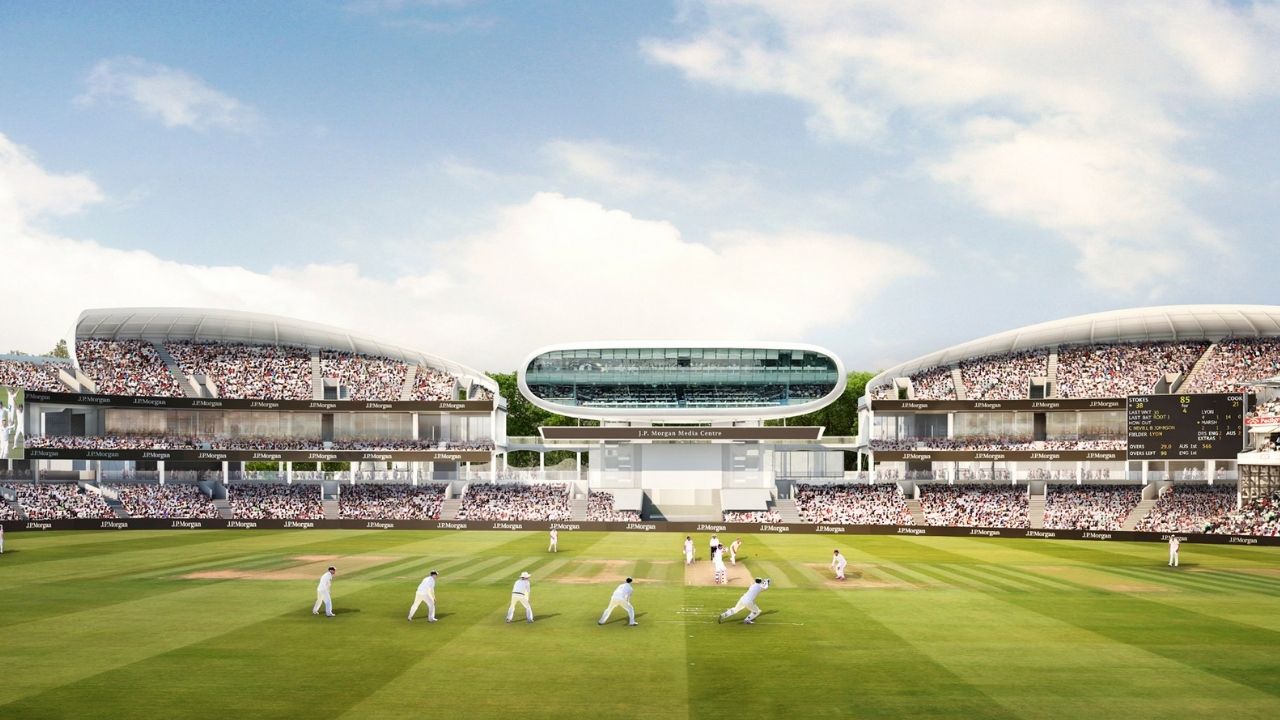The second Ashes Test has been making a lot of headlines for several reasons, here is all about what is who is in the Long Room at Lord’s and the members name
The second Ashes Test’s events garnered widespread media attention for a few different reasons. The first is that the verbal and alleged physical abuse Australia’s players received as they made their way back to the locker rooms after lunch on the last day was disgusting.
Lord’s Long Room members name, dress code, membership cost, meaning and controversy incident explained
So the three MCC members suspended for their behaviour in the Long Room are (and I kid you not)…
BartholomewFrinton-Smythe
Humphrey Wigbert-Porter
Quinten BreckenridgeThey're just taking the piss now, aren't they? It's like a Monty Python sketch! 🤣#ENGvsAUS #Ashes23 pic.twitter.com/pNKvpwiHdL
— Rohan Connolly (@rohan_connolly) July 3, 2023
Even worse than the way Johnny Bairstow went on a walkabout and lost his wicket, is the conduct of the entitled MCC arseholes who booed the Australians in the Long Room at #Lords
Hang your heads in shame #EnglandCricket. Custodians of the laws indeed! 🤬pic.twitter.com/8Zr234cmn0
— Sameer Gharat (@supersam5) July 2, 2023
Biggest wankers in order:
1) Bairstow (a Test wicketkeeper) for being totally oblivious to the situation and standing mid pitch like a dumb-arse
2) Piers Morgan for being a sanctimonious whinging Pom.
3) The racist Poms in the Long Room. https://t.co/z7dYbFch6p
— Ross Martin (@RossMartin1960) July 2, 2023
The second is that the brutality took place at a place that was notorious for its prestige, splendour, and old school etiquette. The red and yellow “egg and bacon” ties and blazers, of course. The Long Room at Lord’s may not sound familiar to a casual cricket fan. What is it exactly? On the first floor of the members’ pavilion (built around 1890) at the famous ground in London, there is a cherished area called The Long Room.
The Long Room was built in 1934 and is ornately furnished, representing more than a century of history. Paintings of notable cricketers and administrators from the 18th to the 21st centuries cover the walls, with Australians Don Bradman, Keith Miller, Victor Trumper, and Shane Warne being among the few foreigners to have their likenesses immortalised there.
However, the walkway that players from both teams must cross each time they enter or leave the pitch provides wealthy members of the Marylebone Cricket Club easy access as they partake in G&Ts, Pimm’s and lemonades. It is distinctive in the world of cricket because of its attribute.
The MCC dress code is ‘smart casual’ but gentlemen must wear collared shirts at all times, even though they can ditch the jacket and tie in the long room.
Its members are generally elderly, wealthy men, and it is notoriously exclusive. Due to the MCC’s gender-based membership requirement, no woman other than Queen Elizabeth II was permitted to access the Long Room or the pavilion before to 1999. When the MCC first welcomed women, Tony Lewis, its president, remarked that winning over its nearly 18,000 members “was like turning an ocean-going liner through 180 degrees”
You must be nominated by another member and go through an interview procedure to become a full member of the MCC. You can apply for associate membership, however the club’s website states that the waiting list is about 29 years long and costs £500 ($955) every year. However, you can always go in if you have the money. Priti Patel reportedly paid £45,000 ($88,200) for a lifetime membership, according to a 2020 article in Tatler magazine. At the time, she was the British Home Secretary.
Because of the room’s elite reputation, there is normally polite applause instead of the extraordinary abuse the Australian side heard on Sunday anytime players pass through it at the start of play, at stumps, on their way out to bat, or upon their return after being dismissed.
Knowing what it is makes it simple to determine what it is not. It’s not the aggressive chants and shouted obscenities from well-dressed men who, on Sunday, resembled Brisbane’s Caxton Street on State of Origin night or the supporters in the former Bay 13 at the MCG or Wanderers Stadium in Johannesburg, also known as The Bullring, rather than the sportsmanship, integrity, and respect it represents.
Loud booing and cries of “Cheats!” and “Shame on you, shame on you!” erupted as the Australians entered the room. Cheats! “Cheats!” was accompanied by a slow hand clap from the players. Every player in a baggy green was yelled at as they passed through the Long Room and ascended the stairs to the change rooms. Some MCC members are alleged to have aggressively harassed Australians.
Usman Khawaja, the opener, took issue with some remarks made by a spectator and argued with him, with David Warner standing by him. Khawaja was heard telling a steward as he was being led away: “Make sure you get him kicked out specifically. “Him and him.”
Andrew Strauss, a former captain of Middlesex and England, said that the crowd on day five appeared to be less exclusive than it was on days one through four. And from where do the club’s colours of red and yellow originate? No one is actually sure, but according to one idea on the MCC website, “colours were borrowed from the wandering [cricket] club I Zingari [‘The Gipsies’ in Italian], who were founded in 1845 and shared many members with the MCC.”
The club was founded following a game in 1845 in which the players celebrated a victory over Harrow, and one of the founding members, Richard Penruddocke Long, did so by “substantial amount of claret.” Possibly, that is the name that is most suitable.



